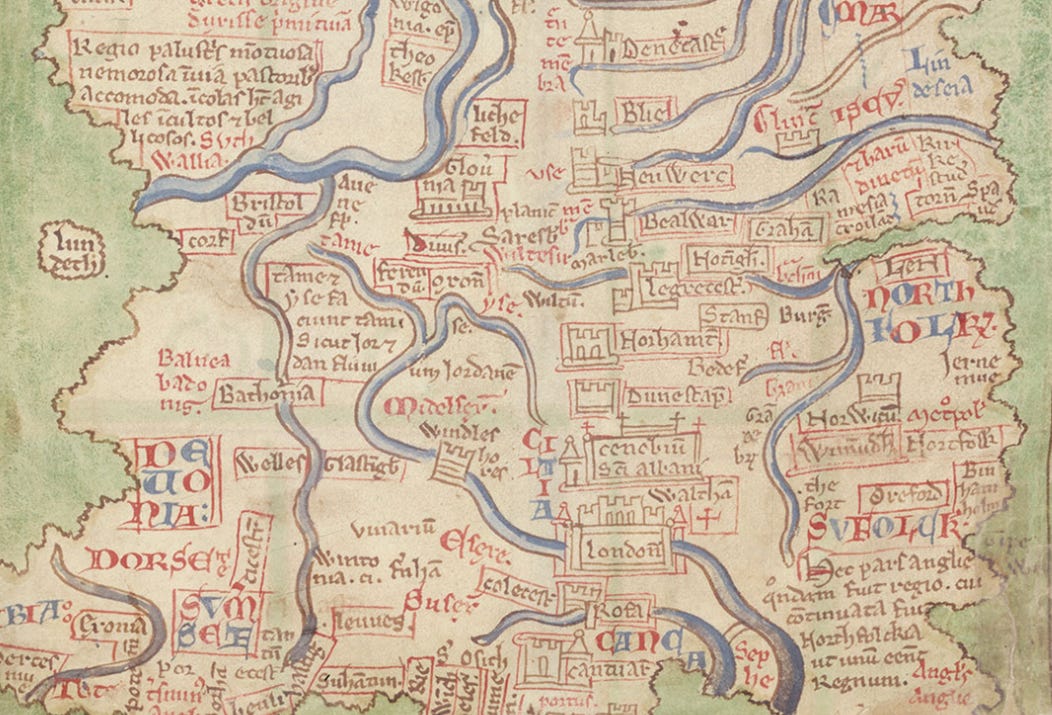Week signals: MAGA Carta
Plus: watch points for Israel, Iran, Haiti, the Sahel, and South Sudan.

This week:
IN REVIEW. Solutions to anarchy, law versus power, a better Mar-a-Lago Accord.
UP AHEAD. Netanyahu’s travels, Iran’s negotiations, Haiti’s crisis, the Sahel’s new benefactor, and South Sudan’s visitor.
Week Signals is the Saturday note for clients of Geopolitical Strategy, also available to GD Professional subscribers on Geopolitical Dispatch. Click here to learn more.
The Week in Review: Getting medieval
The week began with an earthquake in Myanmar. It ended with an earthquake across the world.
The collapse of the rules-based order is now beyond doubt. The geopolitical ructions we've been writing about for almost two years are now reflected in virtually every asset class. The problem has been identified.
But in a week when everyone is admiring that problem, what's the solution? After a series of Week Signals breaking down the theories to Donald Trump’s actions, we look instead to a theory others can adopt. And while this isn't a prediction – the world is likely too divided for a unified strategy – if we’re very lucky we may get it.
For an analogy for the present moment let’s go back to merry England and the reign of King John.
John, known as "Lackland" because he was the youngest son of Henry II, became king in 1199. Best known today for his Robin Hood cameos, John inherited the throne when his brother, Richard the Lionheart, died on the First Crusade.
War with France, the mistreatment of his nobles, and excommunication were the themes of John’s reign. With a reputation for cruelty and pettiness, perhaps his only redeeming feature was his acquiescence to his barons when, in 1215, he signed Magna Carta. And while he would later ignore it – declaring it "not only shameful and demeaning, but illegal and unjust" – it would ultimately outlast his rule, becoming the basis for today’s common law. Indeed, several clauses remain on statue across much of the world. It would also come to be incorporated in basic US law.
But while Magna Carta is considered a landmark for law, it was a consequence of power. Like today’s world, medieval Britain was a system where might made right. Custom and precedent could be upended by a capricious sovereign. The barons were a quarrelsome lot, but they understood unity when faced with a greater threat. John’s decrees, taxes and feuds were bankrupting the land. Trade was being foiled.
The barons banded together and presented John with an ultimatum at Runnymede, backed by the implicit threat of force. Essentially a negotiated peace treaty, which established that the king is not above the law, Magna Carta provided a reliable constitution to usher in a subsequently more stable age.
Could we see the same today? President Trump has likewise been accused of arbitrary, ego-driven decisions – issuing tariff edicts by tweet and seeing allies and adversaries only as trade surplus miscreants. Trump’s abrupt tariffs on friend and foe alike echo a monarch’s whims, reversing decades of liberalisation that built the global order.


